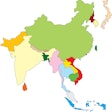The Pew Charitable Trust in association with the Bloomberg School of Public Health and Johns Hopkins University released the report of The Commission on Industrial Farm Animal Production (CIFAP) late last month that took animal agriculture to task on a variety of issues. The report examined environmental, public health and welfare aspects of production, all hot button issues among activist opponents to modern methods of supplying meat, milk and eggs.
According to Dr. Simon M. Shane in The Shane Report on WATTPoultry.com, the principal recommendations from the CIFAP comprise:
- Ban all non-therapeutic antibiotics in production, irrespective of FDA approval based on scientific evaluation of efficacy and safety, and ignoring the reality of nosocomial infections, and that some compounds are neither used in human medicine nor are they associated with emergence of drug resistance.
- Create draconian regulations to limit environmental contamination of air, land and water from Concentrated Animal Feeding Operations (CAFOs). These could effectively eliminate intensive production or markedly increase cost for treatment and disposal of effluent and waste.
- Introduce an expensive and restrictive trace-back system coupled with surveillance of food borne disease linked to a national database.
- Eliminate most confined housing systems for all species based on the dubious assumptions that current production is inherently inhumane and that livestock in CAFOs are immunosuppressed and therefore likely to multiply and disseminate food borne pathogens.
- Restructure the current contractor system which the CIFAP regards as exploitative to farmers and degrading to rural communities.
“There were no recommendations concerning improvement or amelioration other than more regulation and effectively turning back the clock to the beginning of the 20th Century,” Shane says.
The CIFAP report will probably not add to the opprobrium heaped on the livestock industry, Shane says. “Hardcore opponents will never listen to reason or enter into scientific discourse. What is important is that we should not reject the report outright. We should conscientiously evaluate what we are doing and honestly accept deviations from evolving norms and standards."


















